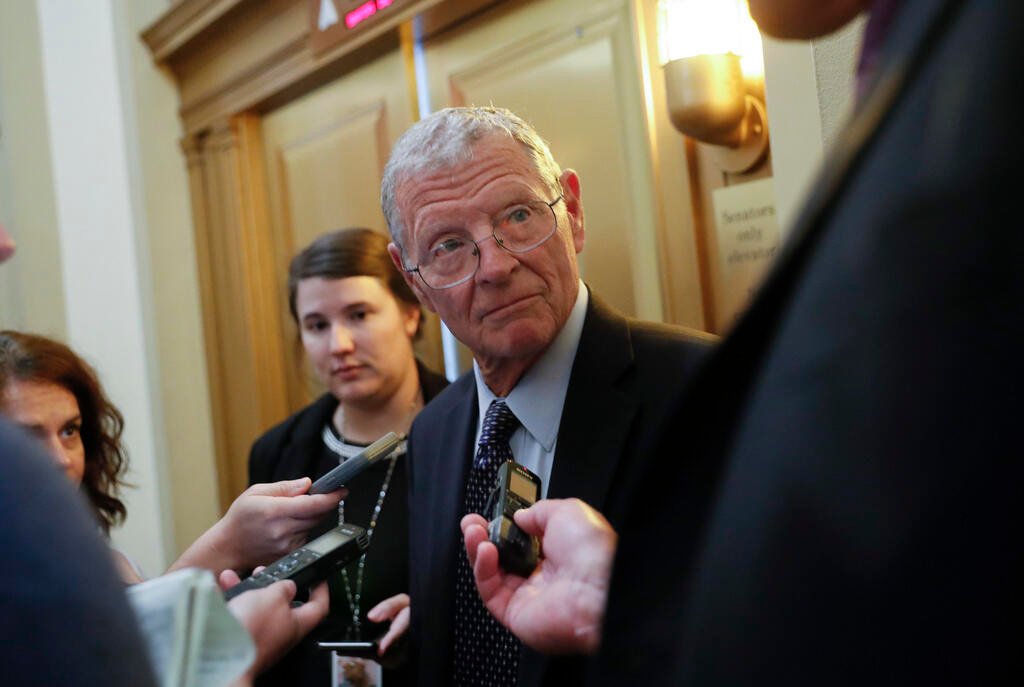Former US Sen. Jim Inhofe, Defense Hawk and Climate Change Skeptic, Dies at 89
Former U.S. Senator Jim Inhofe, known for his staunch defense policies and outspoken skepticism of human-caused climate change, passed away at the age of 89. Inhofe's political career was marked by his conservative views, particularly on defense and environmental policies, which left a significant impact on American politics.

Early Life and Political Rise
James Mountain Inhofe was born on November 17, 1934, in Des Moines, Iowa. He grew up in Tulsa, Oklahoma, where he attended the University of Tulsa. After graduating, Inhofe served in the U.S. Army, an experience that shaped his views on national defense. He began his political career in the Oklahoma House of Representatives in 1967 and later served as mayor of Tulsa from 1978 to 1984. His political career advanced further when he was elected to the U.S. House of Representatives in 1986, representing Oklahoma's 1st district.
Senate Career and Defense Policies
In 1994, Inhofe won a special election to the U.S. Senate, a position he held until his retirement in 2021. During his tenure, he was a prominent member of the Senate Armed Services Committee, where he championed a robust national defense. Inhofe was known for advocating increased military spending and modernization of the armed forces. He believed in maintaining a strong military presence globally to ensure national security.
Climate Change Controversy
Inhofe's views on climate change were perhaps his most controversial. He famously referred to human-caused climate change as "the greatest hoax ever perpetrated on the American people." In 2003, he authored the book The Greatest Hoax: How the Global Warming Conspiracy Threatens Your Future, where he argued that climate change science was driven by political agendas rather than empirical evidence.

Inhofe's skepticism was highlighted in 2015 when he brought a snowball to the Senate floor to mock the idea of global warming during a winter storm. This symbolic gesture was widely criticized by environmentalists and scientists, who argued that weather and climate are distinct concepts. Despite the criticism, Inhofe remained steadfast in his beliefs, often clashing with environmental advocates and pushing back against legislation aimed at addressing climate change.
Legislative Achievements and Impact
Throughout his Senate career, Inhofe's legislative efforts focused on defense, transportation, and environmental regulation. He played a key role in passing several defense authorization acts, ensuring funding for military projects and initiatives. His influence extended to the Environmental Protection Agency (EPA), where he sought to reduce regulations he believed were burdensome to businesses and detrimental to economic growth.
Inhofe's stance on environmental regulations often put him at odds with climate scientists and environmentalists. He opposed the Paris Agreement, arguing that it would harm the U.S. economy and have little impact on global temperatures. His legacy includes a significant rollback of environmental regulations during the Trump administration, which he supported as a means to boost economic growth.
Personal Life and Legacy
Inhofe's personal life was marked by his deep religious faith and commitment to family. He was married to his wife, Kay, for over six decades, and together they had four children. Inhofe often cited his faith as a guiding principle in his political decisions, believing that his duty was to serve his constituents and uphold conservative values.
Despite his controversial views on climate change, Inhofe's impact on American politics is undeniable. His advocacy for a strong national defense and his efforts to limit government intervention in the economy resonated with many conservatives. He was a polarizing figure, admired by supporters for his unwavering principles and criticized by opponents for his dismissal of climate science.

Reaction to His Death
Inhofe's death has elicited a range of reactions from political figures and the public. Supporters remember him as a dedicated public servant who fought tirelessly for his beliefs and his state. They highlight his commitment to national defense and his efforts to ensure the safety and security of the United States.
Critics, however, have pointed to his legacy of climate change denial as a significant blemish on his record. They argue that his opposition to climate action has had lasting negative effects on efforts to address global warming and protect the environment. Environmental groups have called for a renewed focus on science-based policies in the wake of his passing.
Conclusion
Jim Inhofe's death marks the end of a long and contentious political career. His influence on defense policy and environmental regulation has left a lasting impact on American politics. While his views on climate change remain deeply controversial, his commitment to his principles and his dedication to public service are undeniable. As the nation reflects on his legacy, the debate over climate change and environmental policy continues, underscoring the ongoing challenge of balancing economic growth with the need to protect the planet.

Inhofe's Legacy: A Complex Narrative
The legacy of Jim Inhofe is a complex narrative of steadfast conservatism, advocacy for a strong military, and controversial views on climate change. His career serves as a reminder of the deep divisions within American politics and the ongoing struggle to reconcile differing perspectives on critical issues. As the nation moves forward, Inhofe's impact will continue to be felt in debates over national defense, environmental policy, and the role of government in addressing the challenges of the 21st century.


You must be logged in to post a comment.